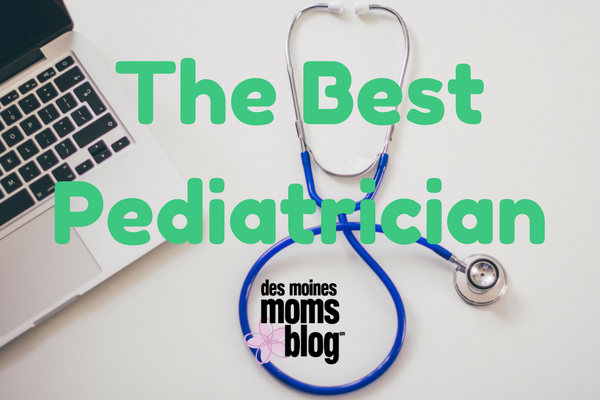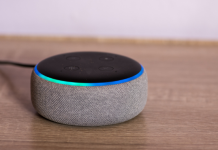 It was our fifth day at Blank Children’s Hospital with our very sick son. Our baby boy had received excellent round-the-clock care, but my husband and I still hadn’t heard a definitive diagnosis to explain his illness. We were beyond exhausted, hadn’t slept well in days, were living off caffeine and junk food, and hadn’t showered in at least 48 hours.
It was our fifth day at Blank Children’s Hospital with our very sick son. Our baby boy had received excellent round-the-clock care, but my husband and I still hadn’t heard a definitive diagnosis to explain his illness. We were beyond exhausted, hadn’t slept well in days, were living off caffeine and junk food, and hadn’t showered in at least 48 hours.
That’s when Dr. Nicholas Fustino walked into our lives.
He was not the first pediatric oncologist we encountered at Blank. Up to that time, we had routinely met with pediatricians who had terrifying specialities: emergency medicine, intensive care, hematology/oncology, and—my personal favorite—infectious disease.
After five days of talking to doctors with titles like those, we knew things were bad.
Dr. Fustino had the horrific task of explaining to us just how bad it was.
Our five-month old son had a rare, aggressive, life-threatening cancer-like illness. Dr. Fustino skillfully explained the nature of our son’s disease, what his treatments would look like, and the reality of his chances of survival.
He told us he would take over Lincoln’s day-to-day pediatric care, as is protocol for many oncology patients. In that moment, he became not only the specialist who would guide us through these uncharted waters. He also became our son’s pediatrician.
It only took a few days of entrusting our son to his care before we realized this guy was the best pediatrician we could have hoped for.
He is a great doctor. And he’s not alone. Our journey through our son’s illness has led us to develop relationships with many incredible physicians.
I will go so far as to say that some of the country’s best pediatricians practice right here in Des Moines.
They are great because as pediatricians, they have multiple patients in each case: the child, of course, but also the family members—both immediate and extended—who are deeply involved in that child’s care.
They communicate to a multi-aged audience. Repeating themselves often, answering phone calls and e-mails on evenings, weekends, and holidays, and spending their free time reading medical journals.
They reassure terrified parents, simultaneously finding the words to explain complex medical procedures to small children.
They have to know medicine and science, but they also have to know when to sit on the floor and roll a toy truck back and forth with a little guy who doesn’t really feel like talking about being sick at the moment.
They have to know when to shift their care from the sick kid to the exhausted caregiver. More than once, our children’s pediatricians were the ones who noticed we were overwhelmed and needed a break.
On Mother’s Day, the pediatric oncologist on-call brought me an iced coffee.
She hugged me and told me I was a good mother. She remembered I would be spending Mother’s Day with my very sick son in the hospital, but away from my daughters—and being away from my daughters made me feel like a very bad mother at that moment.
I don’t even drink coffee, but I savored every bitter sip that day because she knew I needed that coffee—and the reassurance it provided—almost as much as my son needed his chemo.
Our respect for pediatricians is not limited to those in specialized fields. Our general practice pediatricians have played a critical role in our family’s story before, during, and after our son’s illness.
They understand that the healthy siblings of a sick child need more TLC at their routine well-child check-ups. They understand that as parents, our sick leave from work was almost always exhausted – sometimes choosing to forfeit their own lunches or to stay late at the clinic to squeeze in those healthy siblings when the normal ailments of childhood popped up.
I am convinced there is no amount of financial compensation that can repay our pediatricians for their compassion, precision, dedication, and strenuous work schedules. They are called to this work out of a belief that they can help our kids and that they can help families.
They do their work with an understanding that they can meet us in our worst moments— moments when we are exhausted, barely holding it together, in our sweat pants for the third day in a row—and provide the assurance that they are fighting as hard for our child’s health as we are.
And the truth is, it doesn’t have to be cancer. A late-night ear infection, an extended asthma attack, or any event that creates the very real concern that our child is not okay can bring the world to a sudden halt. It is in those moments that all parents want the same thing.
The best pediatrician.
Save

















